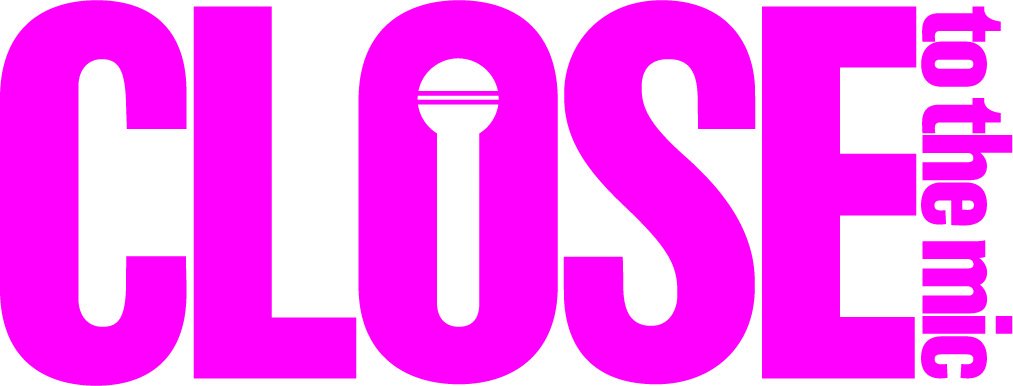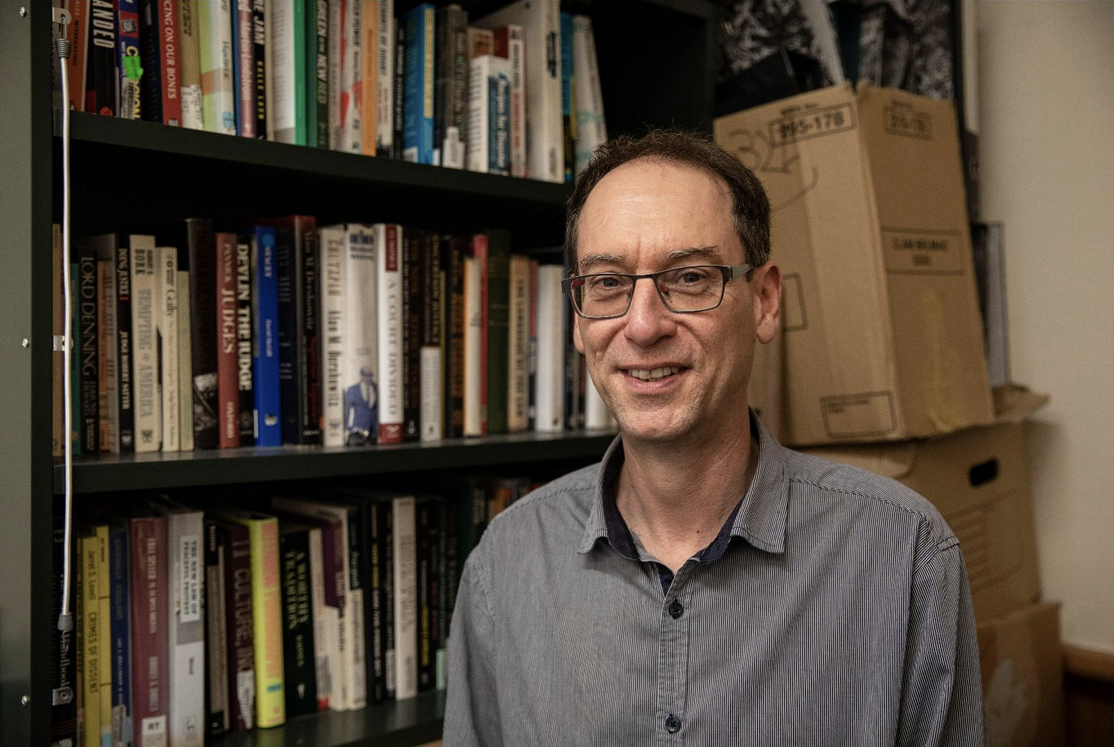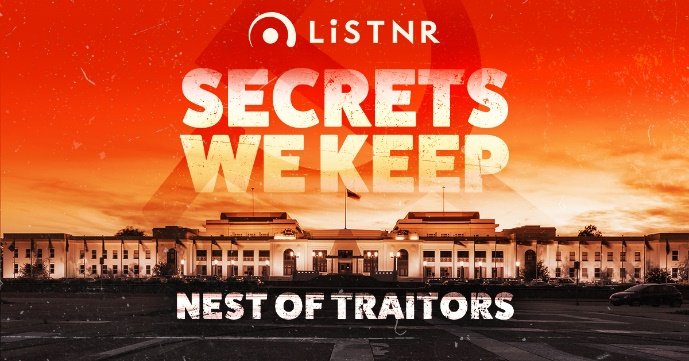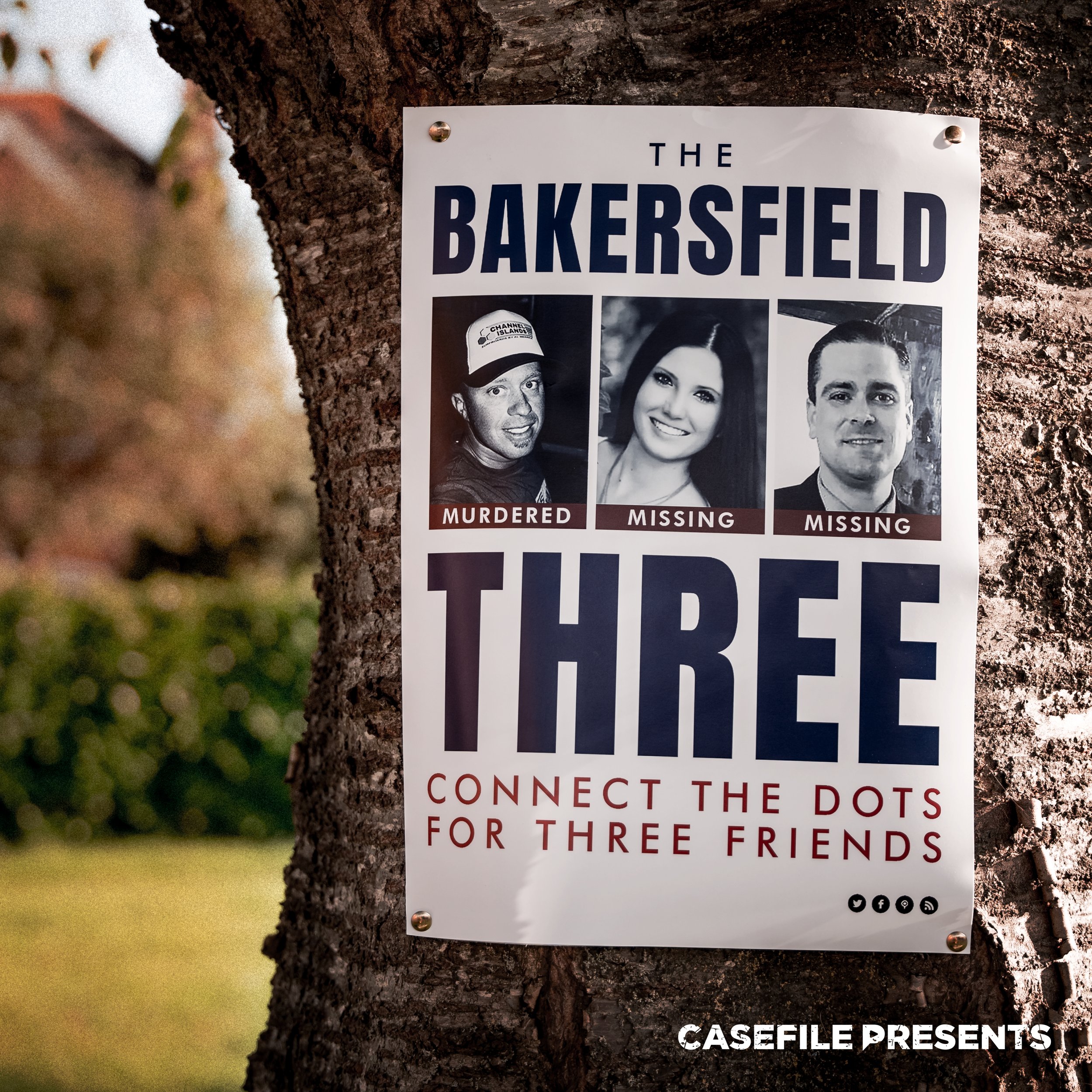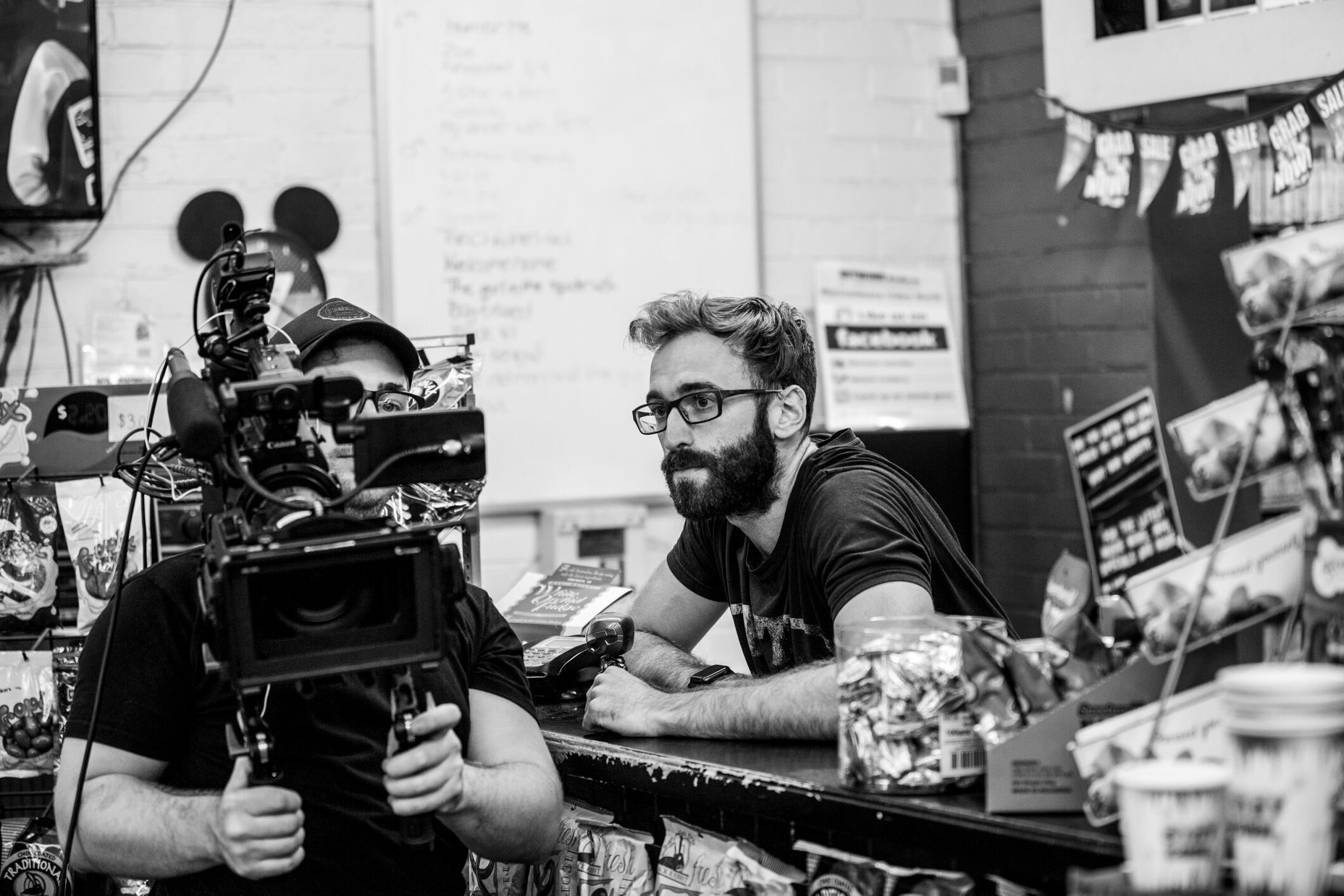Mr Big Sting Prompts Bigger Questions
Host and producer Steven Price is excited that his podcast will finally reach ears. Image: Ebony Lamb
By Sonia Yee
“The trial was due to happen within a year, so I thought there'd be a result or an appeal that we’d probably have to wait for because of legal reasons,” says Steven Price the producer and host of Mr Lyttle Meets Mr Big a new true crime podcast from RNZ.
“What happened is that the first trial fell over because the defence suddenly got hold of this amazing fresh evidence that hadn't been disclosed by the police.”
It’s been five long years since media lawyer Steven Price began working on the newly released podcast. The eleven-part series traces the murder investigation of Brett Hall whose best friend — Manawatu builder David Lyttle — was manipulated to confess to Hall’s murder as part of a Mr Big police sting and consequently arrested in 2014.
Price is excited that people will finally get a chance to listen.
“I read about [the story] and thought it was amazing that the police would be running undercover stings to create this whole criminal gang in order to get [a person] to trust them and then confess to something like a murder,” says Price of his fascination with the story and the clever tricks used by police.
At the same time, through making the podcast and attending Lyttle’s trial, Price was left with more questions than he has answers for including around the legal and moral sides to the story.
“Part of me was going: What if he's innocent? What's going through the heads of the police officers…are they at least a little bit divided about this in their own minds? And then there are questions around, what is the law?”
This new true crime podcast from RNZ prompts bigger questions. Image supplied.
Price admits he was conflicted the whole way through the series, including about the Mr. Big technique itself, and whether Lyttle is guilty.
“I'm conflicted about a series of decisions that were made along the way by the judges about which information should go to the jury, and which information should not,” says Price.
But ultimately, he’s more than happy to leave all of this up to listeners to decide and make their own conclusions.
Today, Lyttle, the man accused of murder, is a free man.
Five years ago, when Price began his research for the series, Lyttle agreed to be part of the podcast. After all, he is the main character in the story. But after the outcome of the court hearing, much to Price’s disappointment, Lyttle withdrew.
“I wanted to interview him about his experience of going into the sting [and find out what it was like] to have the police all around him. And then discuss how he felt when he was told that it was all part of the sting,” says Price, who also wanted to hear what Lyttle’s wife had to say.
“The lawyers said at the end [of the trial that the couple] were too traumatised to talk…I have some scepticism about that response. I think what happened was reasonably shortly after the thing was finally over,” he says.
The police were also adamant that no one would want to be involved in the podcast, and they too, declined the opportunity.
So, was he suspicious about the police’s unwillingness to talk?
“No, not really. I don't think police particularly enjoy being accountable for this stuff, at least not to journalists. To be fair, this is a sting that really relies on people not knowing about these things in order for it to work, so the country can't really know about this sort of thing,” Price says.
“It's telling potential criminals about this tactic that has been successful.”
Police refused to participate in the series. Image: Kat Wilcox
Price says the same technique has been used hundreds of times in Canada, mostly in British Columbia, with substantial media coverage on the topic. But despite this, it hasn’t stopped the technique from continuing to be effective in catching criminals.
“There's plenty of stuff [the police] could say about why this is important, why it works, and how they take special caution not to get false confessions,” says Price.
What’s left in the series is mostly Price’s search for answers and the myriad questions that pop up in his search for the truth. As he makes new discoveries, listeners are taken along for the ride.
Price was grateful to have others involved in the series to tell different sides of the story.
The outcome of the court case is that Lyttle gets off the hook for the murder, and the media has already covered the story. Price adds that Stuff’s coverage explored the view that Lyttle was framed.
“I think his story was told in the way [that David] would have liked it, and it's out there in public. Whereas my story is not going to make things any better…I've been pretty open with his defence lawyers that I had doubts about his story. I'm not saying I thought he was guilty, but I'm not saying I thought he was innocent either,” says Price.
According to the media lawyer there were approximately 25 different court hearings. And after it was over, Price was able to get access to the papers, including the memos, rulings and everything that happened during the trial.
“So, I've had a fairly good idea of what was going on. I've also had access to submissions by the parties and particularly in the final appeal, which was the defence submission of around 200 comprehensive pages, so I could feel pretty confident that I was on top of all the stuff that really mattered.”
As a media lawyer, it was new for Price to be sitting in on the trial. He says some of the information was easy to follow. At other times, it was mysterious because the lawyers know what’s going on, but when sitting in and watching there is information that no one else is privy to, other than possibly the jury.
Price took his own notes during the hearings and admits at times he was easily distracted: “You don't quite get it all down, and then you don't realise it's significant…I made some assumptions that I realised later, were wrong. Some things were missing that fell into place once I looked at the submissions, or went back over the transcripts, and some evidence came out in patches,” says Price.
With the podcast now out in the world, Price is still enthusiastic about the story — one that has been years in the making. He’s keen to see how people respond to the podcast, including having conversations about it.
“Even when I'm expressing a view, I expect plenty of people will listen and go, ‘Oh, that's ******** I don't think he's got that right at all,’ or some people might listen and go, ’I think Mr Big is great!’”
Whatever the case, Price hopes people will find it as engaging and fascinating as he has.
“I think that my job was just to put the pieces in place, and let people think for themselves,” says Price.
